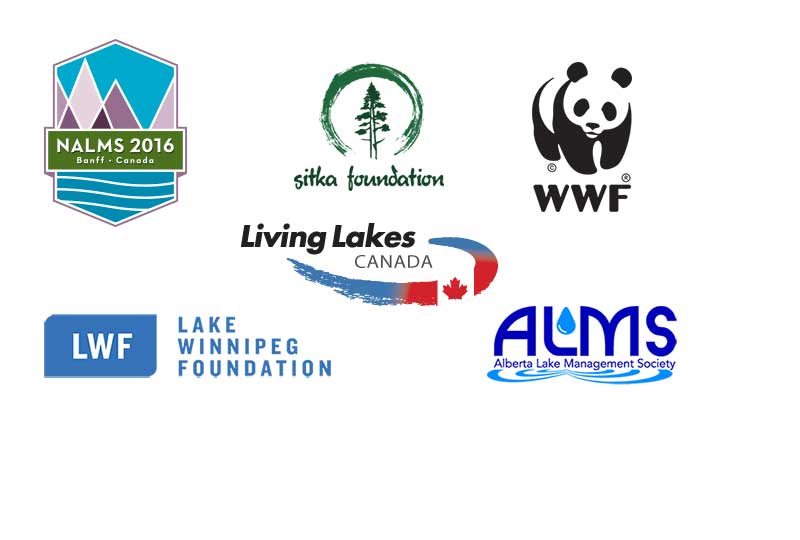This November, as part of the North American Lake Management Society Symposium in Banff, Alberta, Living Lakes Canada is hosting the first ever national dialogue on community-based water monitoring. This interactive, full-day workshop will connect indigenous and non-indigenous citizen scientists with some of the world’s leading water scientists.
Community-based monitoring (CBM) is emerging across North America as one approach to solve the challenges associated with watershed management. While CBM comes in all shapes and sizes, the challenges faced by this type of monitoring are often shared across jurisdictions. Questions such as which parameters to collect, how to develop robust protocols, where to store open access data, how to incorporate traditional ecological knowledge, and how to achieve data recognition and influence policy, all require further exploration in order to enhance CBM in Canada.
Through a diverse panels of experts, including David Schindler, this workshop will generate recommendations on how to move forward on citizen science water monitoring nationally. Anyone interested in CBM, from citizen scientists to academics, are encouraged to register for this workshop and learn from leading best-practice examples from across the continent including the US National Volunteer Water Quality Monitoring program, the Global Lake Ecological Observatory Network, and case studies of CBM from BC, AB, MB and ON.
In order to help address some of the specific challenges we each face, participants are encouraged to come prepared with questions regarding their own CBM programs. Join us as we build bridges between water leaders of all backgrounds and generate collective solutions to enhance CBM in Canada.
Workshop Themes
- Use of traditional knowledge in CBM
- Clear and strategic monitoring parameters
- Coordinating an effective CBM community
- Quality and robustness of protocols being used
- Housing and accessibility of data
- Data analysis
- Incorporation of traditional ecological knowledge into decision-making
- Implementation of data to policy and governance
Workshop Outcomes
- Building bridges between academics, scientists, Indigenous communities and citizen scientists
- Reaching consensus regarding the universal challenges of community-based water monitoring
- Learning from best practice CBM examples from water leaders across North America
- Generating recommendations on how citizen science and traditional knowledge can better address the needs of academic science and decision makers and vice versa, at the national level as well as regional and local levels.
Workshop Agenda
INTRODUCTION
Kat Hartwig, Living Lakes Canada
INTRODUCTION OF PANELISTS
Bob Sandford, EPCOR Chair for Water and Climate Security at the UN University Institute for Water, Environment and Health
OVERVIEW OF COMMUNITY-BASED MONITORING IN CANADA
Tyler Carlson, Water Policy Researcher, Simon Fraser University
PANEL DISCUSSIONS
1. Perspectives: Why we monitor and how we decide parameters and protocols
Dr. David Schindler, Killam Memorial Professor of Ecology, University of Alberta
Linda Green, Program Director, URI Watershed Watch
Mike Stainton, Advisor and Aquatic Chemist, Lake Winnipeg Foundation
2. Data Storage and Analysis: How do we verify, analyze, and share given the variety and scale of initiatives (FN, grassroots, and big data)?
Lisa Borre, Senior Research Specialist, Cary Institute of Ecosystem Studies
Lana Lowe, Director, Department of Lands & Resources, Fort Nelson First Nation
Kirsten Earl McCorrister, Programs Director, Lake Winnipeg Foundation
Bradley Peter, Executive Director, Alberta Lake Management Society
3. Case studies: Data to Policy
Meghan Beveridge, Watershed Programs and Partnerships Manager, Department of Environment and Natural Resources, Northwest Territories
Hans Schreier, Professor Emeritun, Land and Water Systems, University of British Columbia
Terry Reese, Executive Director, Ontario Cottage Owners Association
4. Moving Forward: Identifying common interests and resources and possible next steps
Jeff Schloss, Co-Director, New Hampshire Lakes Lay Monitoring Program
Caleb Behn (Eh-cho Dene & Dunne-Za), Executive Director, Keepers Of The Water
Register for the workshop through the NALMS conference registration site. After filling in your personal information, select the “Workshop, Field Trip or Special Event Only” and then the “Building Bridges: Citizens, Science and Policy” option on the proceeding page.
Bursaries are funding dependent and will be available on a first come, first served basis.








